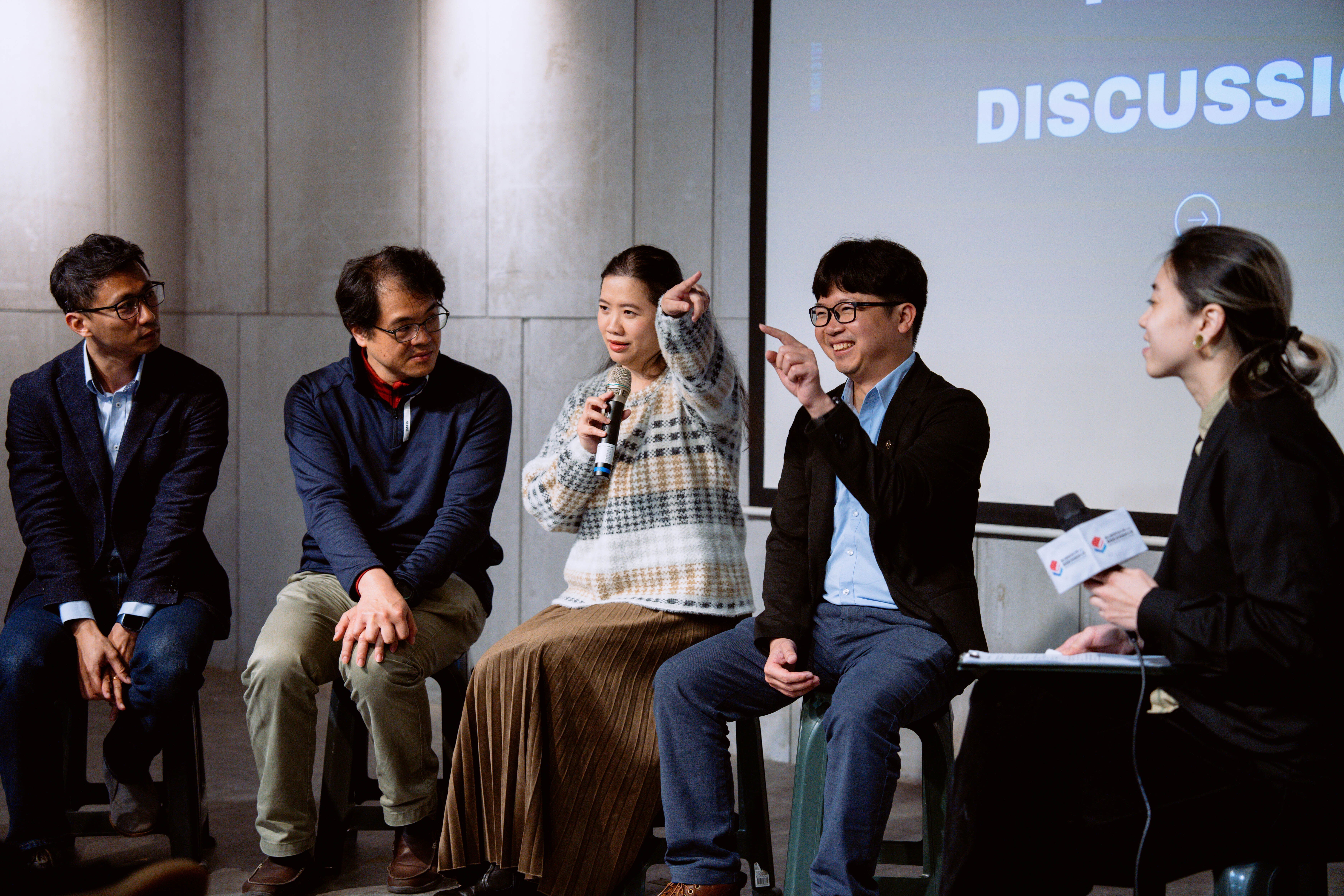

Six colleges, ten courses, and ten teaching styles - this forum brought together educators from diverse fields to explore innovation in EMI (English as a Medium of Instruction) teaching. Hosted by the Office of Bilingual Education Initiatives at TaiwanTech, the “EMI Can Be This Fun” forum featured 11 teachers who recently returned from a training program at the University of California, Irvine. They shared fresh teaching strategies, ranging from animated visuals and AI tools to oral training in calculus. The vibrant discussions and rich content left attendees amazed, with many exclaiming, “This isn’t just English teaching - it’s a rethinking of education itself.”

Taiwan Tech’s Office of Bilingual Education Initiatives hosted the “EMI Can Be This Fun! Teaching Showcase” forum, inviting 11 educators who recently returned from a training program at the University of California, Irvine (UC Irvine) to share their innovative teaching strategies.

The event featured presentations by the participating teachers, who took turns sharing their insights from the training, followed by interactive discussions in a dialogue format.
During the forum, teachers showcased diverse EMI teaching practices drawn from their rich interdisciplinary backgrounds, marking a significant milestone in Taiwan Tech’s bilingual education efforts. The event also honored 22 outstanding educators with the “Excellence in EMI Teaching” award, recognizing their innovative approaches and exceptional performance in the classroom. Vice President Jhy-Chern Liu emphasized that bilingual education is not the responsibility of a single discipline, but a collective effort across the entire university. “Our faculty are embracing the possibilities of EMI in Taiwan’s higher education with innovation and courage,” he said.

Taiwan Tech Vice President Jhy-Chern Liu (right) presented the “Excellence in EMI Teaching” award to outstanding educators, recognizing their innovative efforts and exceptional performance in the classroom.
The driving force behind this successful cross-disciplinary collaboration was Dr. Shao-Ting Hung, Executive Director of Taiwan Tech’s Office of Bilingual Education Initiatives. He personally led a group of teachers from seven major colleges - including Engineering, Electrical and Computer Science, Management, Applied Sciences, Design, Humanities and Social Sciences, and Industry-Academia Innovation - on an intensive 11-day training program in the U.S. The program featured professional EMI teaching workshops and classroom observation sessions at the University of California, Irvine. “Bringing together faculty from different disciplines to learn and grow together is a major challenge,” Hung noted. “But we made it happen! Our teachers have returned with international perspectives and merged them with local classroom practices, creating a unique EMI identity for TaiwanTech.”
Among the many inspiring presentations, a highlight was Dr. Duc-Thang Vo, a professor from the College of Engineering and a native of Vietnam. He personally illustrates diagrams in class, combining them with animations and experimental videos to help students overcome both language barriers and conceptual challenges. “EMI is not just about teaching in English - it’s about translating ideas visually,” he explained. “Once students understand what they see, they gain the confidence to speak.” His approach reflects Taiwan Tech’s commitment to internationalization and multicultural engagement, making EMI both globally relevant and locally meaningful.
Professor Che-Chou Shen from the Department of Electrical Engineering tackled the challenge of teaching calculus in EMI. He designed a learning progression that moves students from “understanding through reading” to “explaining through speaking”, helping them build both cognitive and linguistic skills by guiding them to articulate problem-solving logic in English. Meanwhile, Assistant Professor Shu-Yi Huang from the Center for General Education focused on pacing. “I learned to reduce the number of slides and give students more time to react and discuss,” she shared. “The results were surprisingly effective.”

Assistant Professor Shu-Yi Huang from the Center for General Education adjusted her teaching pace to give students more time for reflection and discussion.
Dr. Ying Wang, Deputy Executive Director of the EMI Teaching Resource Center, concluded that the future of EMI should not merely focus on switching the language of instruction, but on transforming educational mindsets. She emphasized, “We need to design learning activities that foster genuine student engagement and respond to diverse needs.” She also encouraged teachers to leverage AI and emerging technologies to create immersive, flexible learning environments.
This cross-college, cross-cultural, and cross-linguistic exchange was more than just a forum - it served as a bridge connecting educational innovation with global engagement. As Dr. Shao-Ting Hung stated, “EMI is not just a policy goal - it is a language of educational empowerment at TaiwanTech.” In the increasingly competitive world of global higher education, TaiwanTech is proving through action that only continuous innovation and self-challenge can elevate its voice on the international stage, making education a true force for change.

Assistant Professor Renan S. Maglasang from the Department of Industrial Management shared his training outcomes.